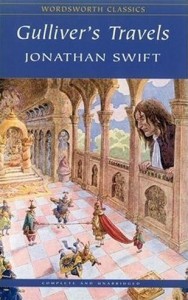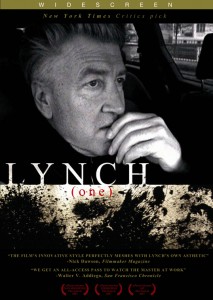Tag: shopping
 In Iceland, a century ago, an older woman dictates a letter to Álfgrímur.
In Iceland, a century ago, an older woman dictates a letter to Álfgrímur.
It was going to be a long-drawn-out business to compose this document. The woman was so fastidious in her choice of words that she made me cross it all out as fast as I wrote it down.
“We’ll tear up this awful rubbish,” she would say. And the few lines we had been struggling to compose for most of the day were consigned to oblivion. We went on like that for days on end. We never succeeded in expressing meticulously enough the kind of slops the calf was to be fed. By nightfall we were so exhausted that we were almost in a coma; and then we tore up the whole day’s output. This woman must surely have been descended from Snorri Sturluson. One thing is certain, that she never deviated from the most stringent standards of Icelandic prose style. Often when I myself am writing something, this woman comes to my mind again. Unfortunately, she failed to realize that one can set one’s literary standards so high that it becomes impossible to utter a single word or groan except at the very most to say A-a-a. Often these letter-writing sessions would end with the woman taking a fit. I would leave the cubicle, defeated, with the pen and stationary, and close the door.
from “The Fish Can Sing“, by Icelandic Nobel Prize winner Hálldor Laxness

I always say I’m more into the classics, but I could be more precise. Most of my readings come from a relatively short stretch of about seventy years, from the last third of the 19th century until the mid-20th. I rarely venture further back in time, out of fear to feel overcome by the socio-cultural -or merely linguistic- distance. Thus, for example, I loved Shakespeare when I read him in college, but I indefinitely procastrinate reading more of his plays. The oldest thing I’ve ever read must have been “Lysistrata“, which felt a little slow but still makes me laugh every time I remember some lines from its chastity oath:
I’ll never lie and stare up at the ceiling,
Nor like a lion on all fours go kneeling.from the Gutenberg Project edition
One of my favourite bloggers wrote recently:
I don’t think reading classics is so important. After all, if they were read in their time is because they knew no better. I read for fun. I don’t read to cultivate myself, or to become a better person, or to have conversation topics at hipster gatherings. I read for fun. That means my choice of reading material is determined by one basic factor -that they entertain me.
Well let me entertain you all with my disagreeing thoughts. Firstly, not everything that was read in the past has reached us today. Probably loads of lesser texts (or then-considered lesser) got lost along the way by lack of interest and -therefore- copies. Even with a bit of bad luck we might have lost some of the best ones, due to their audacity or rebeliousness, in bonfires across the centuries, be it in the depths of a medieval monastery, during witch hunts or at a nazi demonstration. Following our example, less than a fourth of the plays by Aristophanes survive today. The classics that we have are not all that there was. It’s just all that we have.
Secondly, I also disagree because classics can be entertaining in many ways. They come from differents times and cultures, so dumping them all in the same basket can be quite a mistake. I find most classics amusing for some reason or other. Sometimes you discover how old is a certain idea (a character in “The Clouds” already offends somebody else by showing him the finger, over 400 years before Christ), or how early a cliché was born that we still see as modern nowadays, from criticism to the monarchy to vampire myths. In other ocassions one discovers the meaning that certain words used to have and, by seeing them used in a different context, one can deduce how they came to evolve into their modern meaning. Quite often, in general, one can see how people lived in former times, as if you were watching a transdimensional edition of “Big Brother“.
 Aditionally, as writers, we owe a certain commitment to the literary tradition. For example, the novel that I’m working on describes a whole new universe, so for “documentation” purposes I enlarged my queue of readings with titles such as “Alice in Wonderland” or “Gulliver’s Travels”. The latter felt a little imposing because it was published as early as 1726 and I feared it wouldn’t have much to tell me. I’m finally reading it these days, and I have to say I’m impressed at the wide range of topics it touches upon. I happen to have a near-completed play whose characters have different sizes (imagine an Andalusian “Honey, I shrunk the kids“) and I have no joke in it that Jonathan Swift hasn’t already covered in his “travels” to Lilliput and Brobdingang. Moreover, his criticism of Western forms of government is just as valid today as it was almost three centuries ago.
Aditionally, as writers, we owe a certain commitment to the literary tradition. For example, the novel that I’m working on describes a whole new universe, so for “documentation” purposes I enlarged my queue of readings with titles such as “Alice in Wonderland” or “Gulliver’s Travels”. The latter felt a little imposing because it was published as early as 1726 and I feared it wouldn’t have much to tell me. I’m finally reading it these days, and I have to say I’m impressed at the wide range of topics it touches upon. I happen to have a near-completed play whose characters have different sizes (imagine an Andalusian “Honey, I shrunk the kids“) and I have no joke in it that Jonathan Swift hasn’t already covered in his “travels” to Lilliput and Brobdingang. Moreover, his criticism of Western forms of government is just as valid today as it was almost three centuries ago.
In a word, I plan to widen my range of readings, which I hope will widen both my understanding of the world and the number of ways in which literature can amuse me. Are you willing to give it a try?



A simple question today from “Señor Nox”:
I’d like to ask you for the titles of the books you recommended in the podcast regarding the art of writing.
As the podcast is only available in Spanish, I think it’s interesting to list here the books that have been more thoroughly discussed so that everyone can catch up.
- If You Want To Write, by Brenda Ueland
- On Writing, by Stephen King
- Characters & Viewpoint by Orson Scott Card
- How to write science fiction and fantasy by Orson Scott Card
I’m reluctant to recommend Card lately because he has turned out a campaigning homophobe, therefore I’ll try to keep adding new titles soon so you can skip his.
I’d like to remind you that if you do your purchases on DVDGo, Casa del Libro or Amazon UK through the links provided here, a small commission will go to this Writing Workshop to help cover the site costs, which would be highly appreciated by yours truly.

Frank McCourt wrote three novels before dying last year at the age of 78.
The first one, Angela’s Ashes, narrates his miserable Irish childhood in the slums of Limmerick, the opression of his Catholic upbringing and his fight to achieve the dream of sailing to America. It won the Pulitzer Prize and it makes a thoroughly enjoyable reading (not long ago I related how I got hold of my copy).
The second one, ‘Tis, picks up at his arrival upon the new continent and tells of his search for employment, for flats, for a place in the world, for love, for a respectable career. It tries to repeat the formula but it lacks the spark and falls in nowhere land.
The third one, Teacher Man, digs in his experiences as a secondary scholl teacher of English and, for the last few years, creative writing. Both the novel and the character lack a purpose, but both seem to find it towards the last third of the book, which contains the most intense passages of the last two books and is the reason we bring it here. Both McCourt’s work and his advice are perfect matches of Brenda Ueland’s philosophy in If You Want To Write, and perfect contrast with megalomaniac storylines as we discussed them only last week.
We’re going to devote the whole of next week, Monday to Friday, to comment upon several fragments of his work and discuss, through them, the use of real experience and autobiographical elements in fiction.
 I had prepared a different topic for today, but there are bad news. I was sad went I went to bed last night after reading of the decease of Satoshi Kon. Curiously, his appearance on the blog this week follows nicely after Alan Moore y David Lynch (he’s often compared to the latter) though I wish the circumstances were happier. Kon was taken away by a pancreatic cancer at the age of 46.
I had prepared a different topic for today, but there are bad news. I was sad went I went to bed last night after reading of the decease of Satoshi Kon. Curiously, his appearance on the blog this week follows nicely after Alan Moore y David Lynch (he’s often compared to the latter) though I wish the circumstances were happier. Kon was taken away by a pancreatic cancer at the age of 46.
Anime fans will undoubtedly know his works, which include the script for “Magnetic Rose” (the first segment in the popular Memories) and the feature-length films Perfect Blue, Millennium Actress, Tokyo Godfathers and Paprika, each of them a masterpiece. To round it up, he’s also the creator of the television series “Paranoia Agent“, one of my favourite animated shows ever.
As so much Japanese fiction, his works are not as focused on telling a story as on taking the viewer on an emotional journey, but Kon was a master in taking both approaches several steps further than the rest, with simple concepts and outrageously original developments. The most repeated lines today beautifully summarize how his death will affect Japanese fiction:
It’s not that anime will never be the same with Satoshi Kon gone. It’s now much more likely that anime will always be the same.
 I had the pleasure to attend his press conference at Sitges 2006 where he presented Paprika. He announced there that it would be his last movie about the subconscious and that he would open a new cycle in his career. Unfortunately now we will never know what he could have come up with. If anything, we’ll get to see a finished version of the project he was working on, The Dream Machine (second picture). The film’s characters are all robots and it’s intended for family audiences.
I had the pleasure to attend his press conference at Sitges 2006 where he presented Paprika. He announced there that it would be his last movie about the subconscious and that he would open a new cycle in his career. Unfortunately now we will never know what he could have come up with. If anything, we’ll get to see a finished version of the project he was working on, The Dream Machine (second picture). The film’s characters are all robots and it’s intended for family audiences.
Today more than ever I invite you to follow the link and get your hands on some of his works. They are bound to surprise you.
 The Landscape of Alan Moore, which we discussed yesterday, awoke in me the interest to see another documentary on one of our scarce mad geniuses alive, the ever original David Lynch.
The Landscape of Alan Moore, which we discussed yesterday, awoke in me the interest to see another documentary on one of our scarce mad geniuses alive, the ever original David Lynch.
Lynch (One) covers a period of about two years (2005-2006) and witnesses the recording of some videos for DavidLynch.com affiliates, the creation of some of his pictorial works and the shooting of scenes for his most recent feature film Inland Empire. Unfortunately, the selection of rather unsignificant moments tells us very little about the character or his creative force.
Forget being the best of anything. That’s the fruit of the action, and you do the work -they say- for the doing, not the fruit. You can never really know how it’s gonna turn out in the world but you know if you enjoy doing it. And ideas start flowing and you start, you know, getting excited about stuff. Then you’re having a great time in the doing and that’s what it’s all about. If you don’t enjoy the doing, then do something else.
Lynch praises the virtues of meditation, as he did in Catching the Big Fish -which we can discuss some other day-, and invites all artists to medidate in order to -according to his words- reach a state of pure creativity. He then refutes the theory that the artist must suffer in order to create, and claims that artists will be more creative the happier they are. Beyond these claims, the apprentice genius -or even the Lynch fan- will get very little out of this boring documentary.